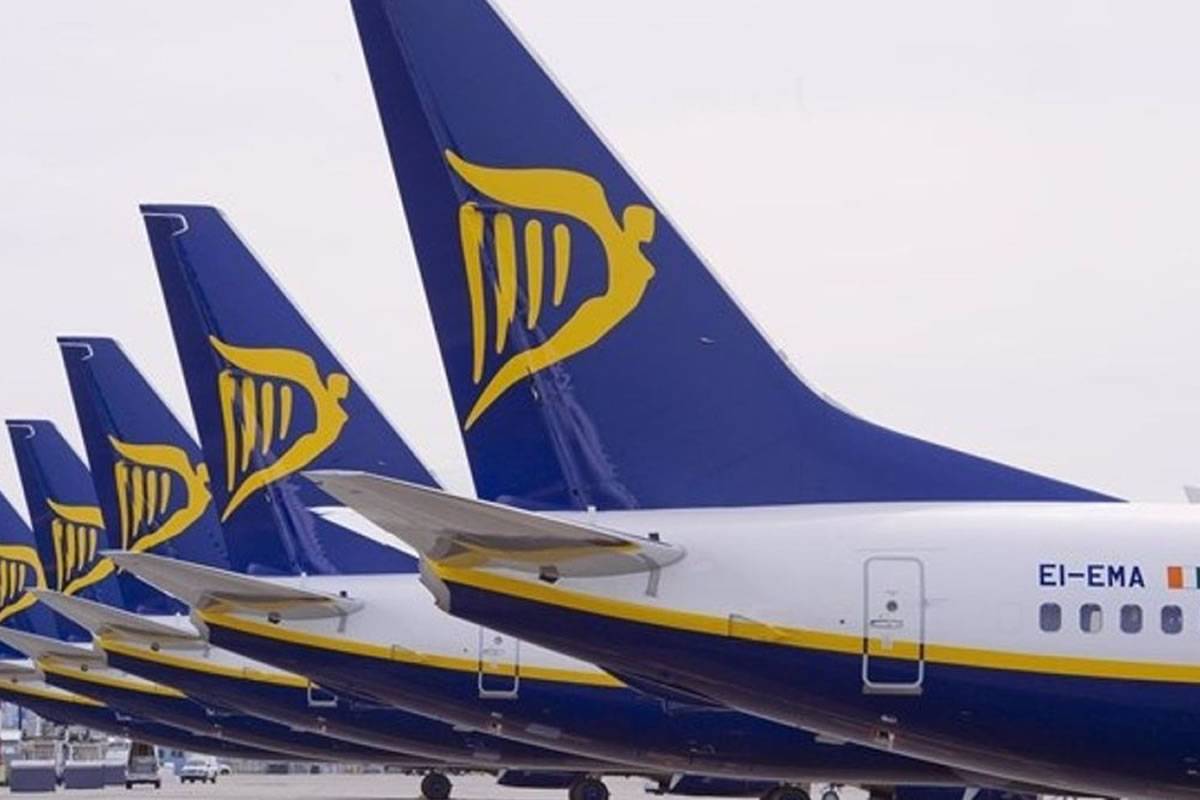300 flights and 50,000 passengers will be affected in the Canary Islands by a Ryanair strike
- 16-06-2022
- Business
- Canarian Weekly
The strike by Ryanair cabin crew on the weekends of June 24th, 25th and 26th and June 30th, July 1st and 2nd, seems more inevitable as the unions and airline representatives say they are “miles away” from reaching an agreement, even though the unions are saying, “If Ryanair returns to the negotiating table, the strike would be suspended.”
Over the two weekends of the planned strike, Ryanair have 300 international flights (150 round trips) scheduled in the Canary Islands which carry around 50,000 passengers who are set to suffer delays and flight cancellations, however, the impact will be greater or less depending on the minimum services that are established during these dates.
In the last strike, in September 2019, the Ministry of Transport established such high minimum services that the strike was hardly felt. Subsequently, and after an appeal from the workers, the National High Court annulled the 'minimum services order' two years later, but by then it was too late.
Regarding domestic flights, which connect with mainland Spain, it is expected that the strike will have little or no effect, because, as happened in the 2019 strike, it is estimated that the minimum services will be 100% with routes covered by other airlines.
The cabin crew, between 1,200 and 1,400 in Spain, have been negotiating a collective agreement for five years now, and the agreement is still as difficult to reach today as it was at the beginning of the process, given the company's refusal "to respect the rights of the labour template”, as indicated by the general secretary of USO-Ryanair, Lidia Arasanz.
Arasanz said, "The only option for there to be no strike is for Ryanair to sit down at the negotiating table again." As she explains, the airline left negotiations in May due to their refusal to accept the proposed salary tables.
Instead, they signed an agreement with the CC OO, which, according to Arasanz, ‘has no representation’ as USO and Sitcpla have binding agreements with workers to be their negotiators, which is why the strike has been called.
However, Ryanair's opinion is different. The airline "is pleased" to have closed an agreement with the CC OO, which it describes as the "largest and most representative union in Spain" and which, in its words, "provides improvements for cabin crew."
Ryanair claims that the strike will not be followed through by staff
“The announcements by the USO and Sitcpla unions, smaller unions, are a distraction from their own failures to reach agreements after three years of negotiations and we believe that any strike they call will not be supported by our Spanish crews”, assures the airline, which trusts in a reduced impact of a strike.
Ryanair is undoubtedly the leading airline in the Canary Islands. In 2019, they transported 3.4 million people, which represents 17% of the total number of passengers, to the islands.
This year, they are predicting they will reach 4 million seats with planes being 90% full, one of the highest occupancies in the market after the pandemic.
The airline is also in discussion with the Canary Islands Government to reopen the bases in the archipelago that it closed in January 2020, although they still haven’t paid off the dismissed workers what they owe them.
Other articles that may interest you...
Trending
Most Read Articles
Featured Videos
TributoFest: Michael Buble promo 14.02.2026
- 30-01-2026
TEAs 2025 Highlights
- 17-11-2025




























































